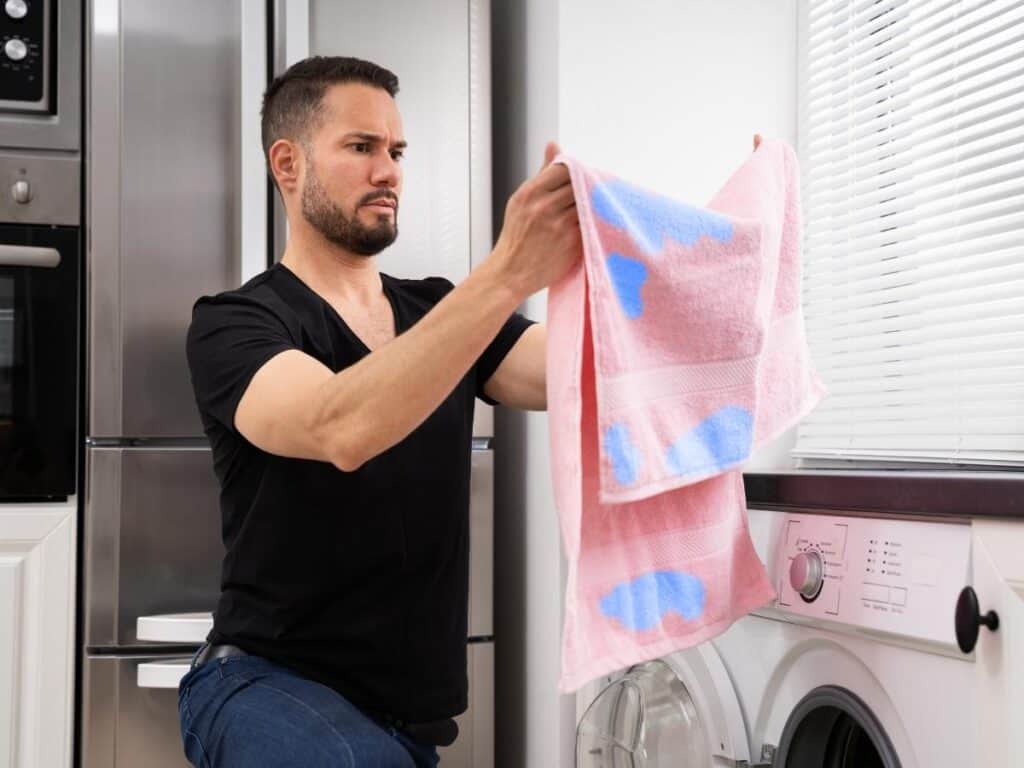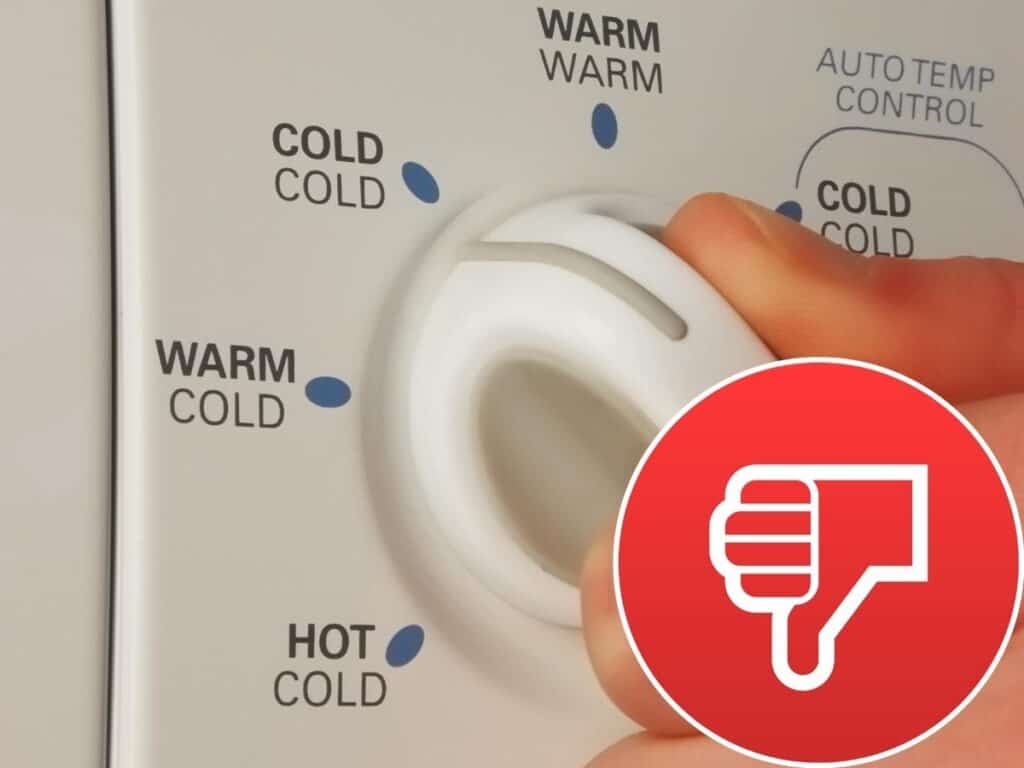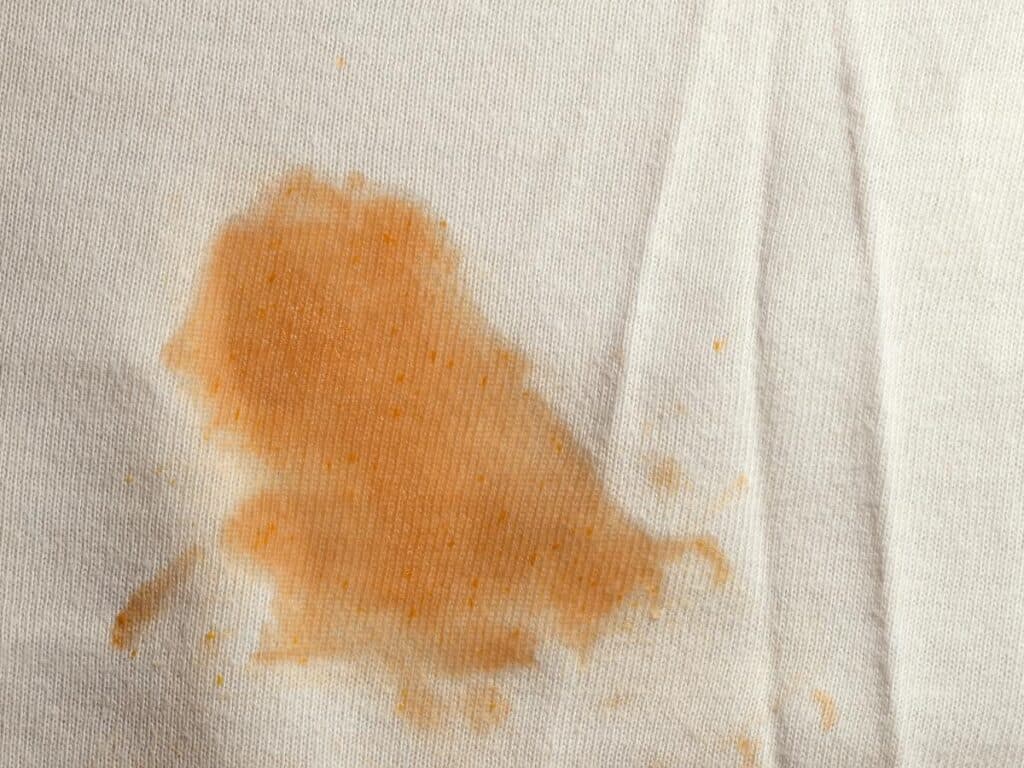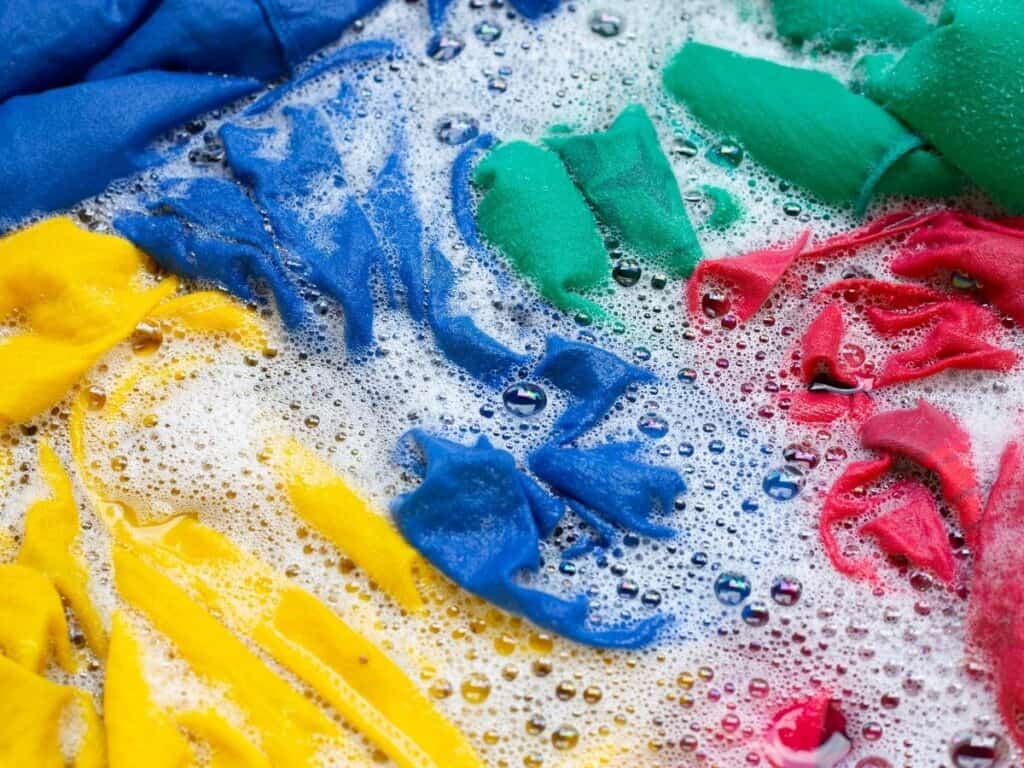Your clothes are an investment, and a lousy wash can leave them in tethers. Who among us doesn’t have a favorite sweater we would hate to see faded or a pair of jeans we would be devastated to see ripped?
If you’re ready to start perfecting your laundry routine (rather than just throwing all your clothes in the wash and hitting “go”), then you might be wondering what temperature is best to wash your clothes.
Washing in cold water can help you save money on energy bills, be more gentle on your delicate fabrics, and positively impact the environment. However, cold water might not be the best choice if you wash clothing that needs to be sanitized rather than just cleaned, such as scrubs or reusable diapers.
Below, we expand on the benefits and disadvantages of using cold water in the wash. Then, we answer some of your most frequently asked questions about proper laundering.
Pros of Washing Your Clothes in Cold Water
Washing your clothes in cold water is as simple as turning the dial to “cold cold” or “warm-cold.” All washers have this capability, and you can switch it back and forth between loads.
Additionally, detergent brands are specific for cold washing, such as the concentrated Tide Cold Water Clean and the fragrance-free Biokleen Natural Cool Wash (amazon paid links).
These products help efficiently get off even the most stubborn stains while still enjoying the benefits of using cold water to wash your clothes. And as you’ll see in the following sections, there’s a wide variety of advantages when it comes to cold washing.
Cold Water Washing Saves Energy
First and foremost, and probably one of the most prevalent reasons people are going to the cold side, is its effects on the environment. Washing even one cold load makes a big difference!
Suppose you’re looking at ways to cut down on your energy or save a little cash on your utilities; doing a cold laundry load helps. The Department of Energy suggests washing your clothes in cold water and using cold-detergents as much as possible to help save on energy consumption and costs.
Not only will it help cut down on your energy bill, but it’ll also help to reduce your carbon footprint. For example, if we all were to do one cold water wash per week, we’d be saving the same amount of energy that powers 240,000 homes. That’s a massive difference from making one small change a week.
I also wrote a guide on why it’s cheaper to do laundry at night that may interest you to check out.
Cold Water Washes Are Helpful for Stain Removal

Whether you thought it was an old wives’ tale or a myth, the truth is that cold water washers are super helpful for stains. Most things require cold water for adequate stain removal.
The Cleaning Institute says it’s best to use cold water for stains such as bloodstains (warm water will make these stains worse), bodily fluid stains, sauce stains, and adhesive stains. You can easily wash grass stains with a cold wash, which might save you time and energy.
A few things might do better with warm water, like oily stains, but using cold water won’t ruin the garment. On the flip side, using warm water on a stain from any of the things above will make it nearly impossible to wash out.
Cold water is always a safe bet when dealing with stains.
Here’s my guide on what temperature water to wash your clothes in.
Delicate Clothes Should Always Be Washed in Cold Water
There’s no pain quite like pulling your favorite garment from the washer and finding that it’s now more salmon than hot pink. Cold water is more gentle on your clothes, making it ideal for clothes with vibrant colors or delicate fabrics like silk. By this logic, any of your clothes are likely safer in the cold wash than in the warm wash.
Hot water can sometimes shrink clothes and contribute to color fading. But, on the contrary, it’s less likely your clothes will be affected by a cold wash.
Cons of Washing Your Clothes in Cold Water

Though washing in cold water has tons of benefits for your clothes and energy bills, there are downsides. Below, we highlight some of the things you may need to consider before making the big switch:
Cold Water Washing Is Not As Sanitary
Unfortunately, this disadvantage may be a pretty big deal-breaker for some. Cold washing isn’t as effective as warm water or hot water washes when it comes to your dirty-dirty clothes.
And by dirty-dirty, we don’t mean clothes with mud and grass stains. We mean clothes you were wearing in the ER or in a childcare facility where you were sneezing all day. Cold water will definitely help with stains (see above), but cold water isn’t the best choice for sanitization purposes.
To reduce your risk of getting sick, you should wash your clothes in hot water.
This would make the most sense if you found a job where you’re around many sick people, like a doctor or a nurse. You should wash your scrubs in warm water.
If you’re a childcare teacher, work with animals, or work outside, you might want to wash your clothes in hot water rather than cold water.
Take this piece with a grain of salt, though. Some would say that the real heat sanitization process happens in the dryer, so washing on hot is what’s the most important.
Cold Water Washing Won’t Help With Oily Stains

As we mentioned above, you should treat most stains with cold water until you know what stained the garment. Warm water can cause permanent damage to clothing items that should be treated with warm water.
That being said, some stains do better with hot or warm water, such as candle wax stains, chocolate stains, or paint. Just be sure to investigate thoroughly before applying warm water to the stain.
Some Clothing Does Better in Warm Water
While your delicates need cold water, some of your clothes might do slightly better with the temperature turned up. There’s no doubt that cold water is more gentle on your garments, but that may be the problem.
Knits and jeans might need to be washed with warm water if they’re especially dirty because the fabrics are manufactured and thick. This requires a little more heavy-duty intervention, such as what you’d get with warm or hot water.
Washing in cold water won’t damage your clothes, though, even if they’re heavy-duty. On the flip side, washing your delicates in hot water or warm water will likely shrink or fade the garment.
Common Questions About Washing Clothes in Cold Water
Hopefully, the above information has given you a little more insight into whether you’re going to make the big switch to cold water or keep doing what you’re doing.
Remember, you don’t have to choose one. There’s lots of room for a middle ground where you wash just one or two loads a week in cool water. Below, we answer some of your most frequently asked temperature questions.
When Should I Wash Clothes in Hot Water?

If you switch to cold water, there are times when hot water or warm water will still be necessary. How will you know if you need to do cold water or hot water load?
Wash your clothes with hot water if you need a more heavy-duty clean. Hot water helps sanitize clothes more effectively. If you work around people and lots of germs, feel like you need to sanitize your clothes rather than just clean, or are working with soiled fabrics, you should use hot water.
Just be sure that the garments you’re watching can handle the extra heat.
Garments like scrubs and reusable diapers can be made with delicate fabrics that might get destroyed if not washed with cool or warm water, so consider this.
If your kiddo had an accident and soiled his sheets or clothing, hot water is also probably your best bet.
Should Laundry Be Washed in Cold Water?
Like all things in life, the answer to this question will depend on your preferences and priorities.
You should wash your laundry in cold water if the clothes are stained, need a delicate wash, or if the label says it needs to be washed cool. Washing with cool water is generally more delicate on clothes. It also helps with basic stains.
In addition, it can really help with your energy consumption. If you can spare a load of laundry a week to use cold water, it can make a big difference and save you money on your energy bills.
Does Washing Clothes in Cold Water Kill Germs?
Our clothes pick up a lot of things. They can pick up smells, stains, and even germs. So will switching to cold water washes affect your health?
Washing clothes in cold water is less effective than washing in hot water when it comes to killing germs and sanitizing your clothes. You’ll likely kill fewer germs using cold water. Hot water is better for sanitization in general.
This may only be relevant for those of us who work in hospitals, childcare centers, or senior living facilities, though. Washing clothes, in general, doesn’t necessarily kill all germs.
Some information available says that what really might be the grandest factor in killing germs is the detergent you use and the drying process. Washing clothes in cold water is for sure less effective at killing germs than washing in hot water, though.
Why Is Washing Clothes in Cold Water Better for the Environment?

Even if you’ve heard washing your clothes in cold water is better for the environment, you may not understand why exactly that is. Does it have to do with water conservation, or does it affect the amount of energy your washer uses?
Washing your clothes in cold water is better for the environment because it takes less energy for each load of laundry you do. In general, consuming less energy is beneficial for the environment.
Doing laundry requires significant energy to be consumed by your household, and the process of heating the water for your load of laundry takes even more energy.
While going completely cold would lessen your carbon footprint, it’s okay to start small, too. If every home were to switch to cold-water washing, it would equal getting 200,000 cars off the road. Even these little changes can have an impact on the environment.
How Much Energy Do You Save by Washing Clothes in Cold Water?
Washing with hot water is a huge source of energy. 90% of the energy consumed during a load of laundry is spent heating water.
Watch this YouTube video to learn why washing in cold water saves energy:
By washing your clothes in cold water, you are saving a rough estimate of 584kWh a year. Annually, this is roughly $66 in cost savings.
Your consumption will be even less if you have a washer built for sustainability or if you typically wash with hot water compared to warm water.
Even though it doesn’t seem like much, Energy Star calculates that the switch will be about 584kWh, just your average washer. But, of course, washers made to save energy and consume less in general when paired with a cold washing regime will save even more energy.
If you have a large household and go through tons of laundry, your savings will be even greater.
Conclusion
Washing your clothes in cold laundry takes less energy than a warm or hot water wash, which will decrease your energy consumption and is better for the environment.
In addition, most delicate clothing items, such as silks or laces, require cold washes because they’re more delicate than your jeans.
Some drawbacks are that your scrubs, reusable diapers, or otherwise unsanitary clothes won’t be sanitized as thoroughly in cold water. Additionally, not all stains do well with cold water. Oily ones will require hot water first. So really, the best choice is whatever fits your priorities the most.
I’ve created a comprehensive guide on how to use all the settings on your washing machine that may interest you to read next.

I’m an expert wardrobe organizer and a bit of a clean freak. I created this website and its YouTube channel to share practical guides about laundry and organizing. My teachings have been featured in multiple large news publications, and I’ve self-published two wardrobe organizing books and an entire course on the subject.

